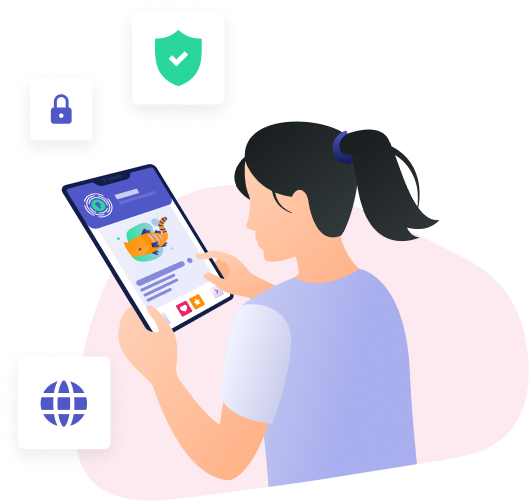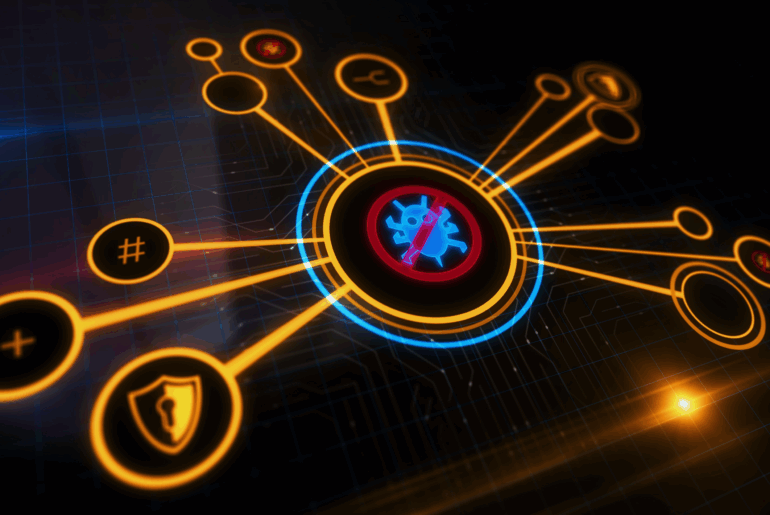You may be familiar with the idea of name generator memes. They appear as images with a series of numbers or letters tied to words or phrases that, when connected, give you a unique “name.” Typically, the images come with a variation of, “what is your ___ name?” This can range from superheroes to pirates to Star Wars characters. Although it may seem completely innocent, this meme is a cybersecurity risk. But how could a simple image give cybercriminals the opportunity to steal your data? We’ll tell you more as we explore this security risk below.
What are Name Generator Memes?
Memes are images or videos which are shared around the Internet for the purpose of entertainment. They can be comedic or, in this case, purely just for fun. They were originally used for creating character names in roleplay and video games. However, you may have seen name generator memes appearing on Facebook and Pinterest, as well as on Twitter. In these images, creators list out the alphabet and assign a name or characteristic to each letter. They then ask you to write out your name using the image as a key. Let’s look at an example.
In the above image, the creators ask users to list out their new superhero name by using the initials of their actual name. While this may seem totally innocuous, sharing this reveals more information than you may want others to know. For example, if you were to share this on Twitter, your followers would be able to see what answers your initials correlate with. They could use that data to find out your middle and last initial, which would help them track you more easily. However, this is just the tip of the iceberg. There are other variations of this meme that are even more potentially risky.
Some versions of this meme ask users to reveal vital information such as their birthdate, the year they were born, and their mother’s maiden name. The issue? These are all common security questions that could easily be manipulated by criminals online. It’s important to keep your personal information private, and these memes could easily cause serious security issues.

Keeping Your Information Safe Online
Although it may seem easy, keeping yourself safe from cybersecurity risks is a challenge. As we saw above, these cybersecurity risks can pop up anywhere. The best way to secure your data is to educate yourself on best practices for online security and protection. Below, we’ll show you some surefire ways of protecting yourself online.
- Never reveal your full name, age, or location
- Use strong, unique passwords on all accounts
- Activate two-factor authentication
- Update your privacy settings
- Never click on suspicious links
- Avoid opening messages from strangers
- Keep your system software up-to-date
- Use a reliable VPN on all your devices
Protecting your personal information on the Internet is harder than you think. Most social media platforms influence users to give away huge amounts of private data. Even Facebook, the most popular social media app in the world, instructs users to share their location, where they work, and their full name. This can easily be manipulated by cybercriminals in a number of ways that can cause serious damage to your financial information or your reputation. Below, we’ll explore some additional online security threats to help keep you informed and safe.

Common Cybersecurity Risks
So far, you have already learned about name generator memes and the cybersecurity risk that they present. However, this is just the beginning when it comes to online privacy threats. There are a variety of different ways that cybercriminals can seek out your information and use it against you. Luckily, keeping your information safe can often help to reduce these risks. The best defense is knowledge, so let’s learn a little bit more about these common cybersecurity threats.
- Ransomware: When cybercriminals withhold access to your system or data until you pay a certain amount of money.
- Malware: Malicious software installed on the devices of victims to allow criminals to steal their information.
- DDoS Attacks: Distributed denial of service attacks prevent users from accessing their devices, similar to ransomware.
- Phishing: Attacks that seek out victims using certain parameters and attempt to trick them into giving away information.
- Social Engineering: A variety of cyber attacks where criminals manipulate their targets through private messaging.
This is only a small selection of the risks that you may encounter on the Internet. The number of possible threats continues to increase every day. The best way to keep yourself safe is to practice good Internet hygiene, update your system regularly, and use a powerful VPN. With all of these factors in place, you should have a much easier time keeping yourself safe online.

Reliable Internet Security from PrivadoVPN
Ready to start protecting yourself online with just one click? PrivadoVPN gives you safe, reliable access to a powerful VPN that makes it easy for you to secure your IP address. Never worry about the privacy of your online activity again.
With our easy-to-use app, premium network, and encrypted global servers, you can be sure that your data is completely secure. We offer unlimited monthly data for all of your devices, so you can be sure that your entire home network is protected. Plus, with premium access to PrivadoVPN, you can take advantage of our true zero-log guarantee and feel peace of mind knowing that we will never store logs of your activity or personal information. Find out why experts love PrivadoVPN and sign up today!
Download PrivadoVPN
Protect your privacy with a world-class VPN. Sign up for premium access to PrivadoVPN and get unlimited monthly data, access to 300+ servers from around the world, and up to 10 simultaneous connections. Get a top-rated VPN that can secure your privacy at home, at work, or on the go.
Sign up for PrivadoVPN today!




